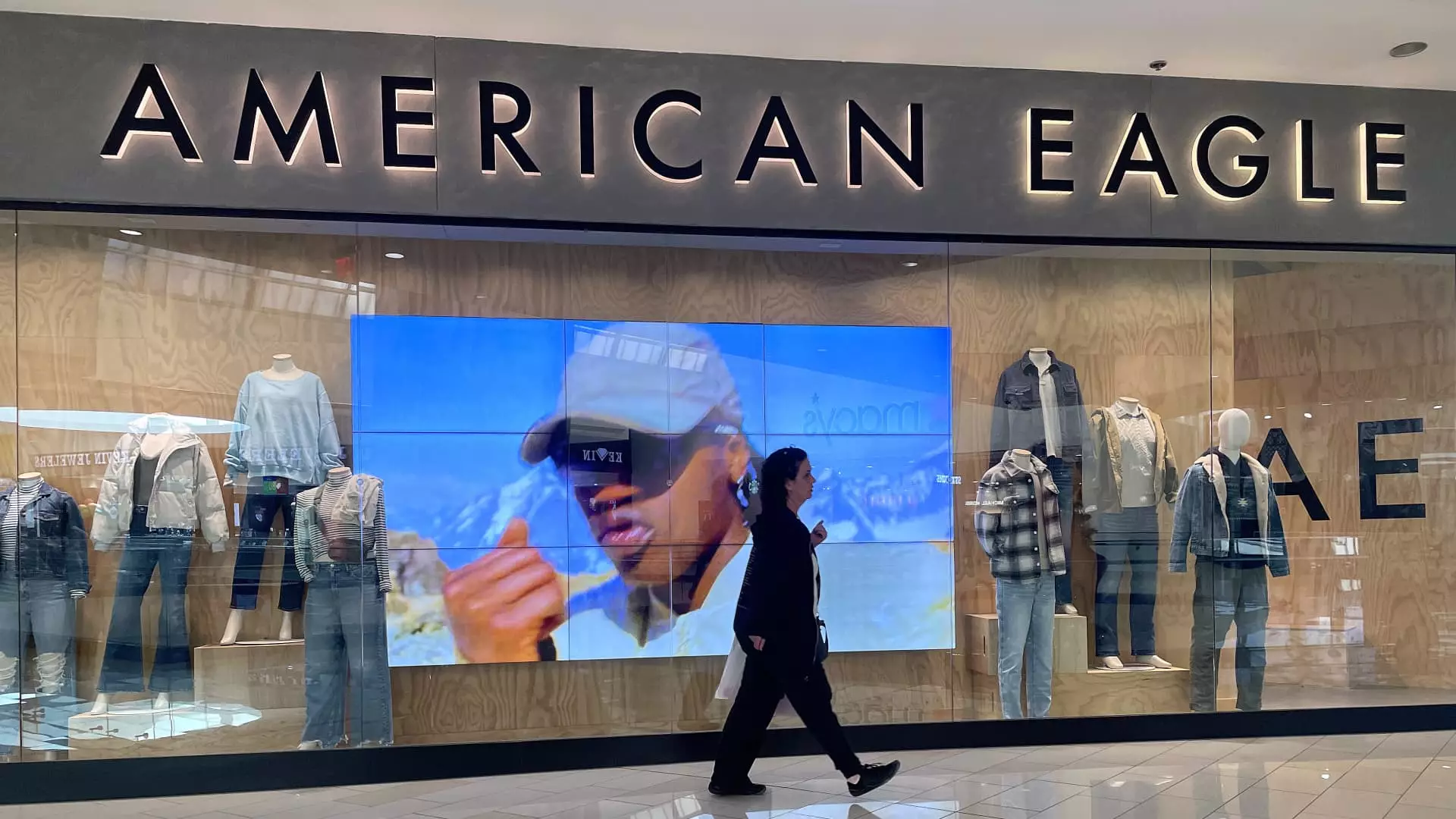The ongoing legal tussle between American Eagle Outfitters and Amazon shines a spotlight on the challenges businesses face in protecting their brand integrity in the digital marketplace. The lawsuit, which American Eagle filed in the U.S. District Court for the Southern District of New York, accuses Amazon of infringing on trademark rights linked to American Eagle’s Aerie clothing line. At its core, this case raises fundamental questions about consumer rights, corporate responsibility, and the ethical implications of online retailing.
American Eagle claims that Amazon engaged in “flagrant, unauthorized use” of its trademarks associated with the Aerie brand. The lawsuit details that when customers search for Aerie products online, they unwittingly encounter listings on Amazon that feature what American Eagle describes as “inferior quality knock-offs.” These knock-offs allegedly mislead consumers into believing they are purchasing genuine Aerie products, thereby diminishing the brand’s value and eroding consumer trust.
This scenario is not merely a legal dispute; it encapsulates a broader concern about how major e-commerce platforms handle third-party sales and the counterfeit goods market. American Eagle elucidates its perspective by stating that it never authorized Amazon to sell Aerie products. The rationale behind this decision is clear: American Eagle seeks to maintain a distinct brand identity and offer customers an authentic shopping experience.
The proliferation of counterfeit products sold through platforms like Amazon is not a new phenomenon. As online shopping rises, so too does the risk that deceptive merchandise might infiltrate consumers’ perception. The complaint cites repeated incidents where customers searching for authentic Aerie products are instead served up a catalogue of fake or substandard items—often sloppily named with slight alterations to the original trademark, such as “Aeries” or “Arie.”
Such underhanded tactics are not just detrimental to American Eagle; they pose a considerable risk to consumers who may unknowingly purchase products that do not meet quality standards. The implications are far-reaching—impacting customer satisfaction, brand loyalty, and ultimately, sales.
American Eagle’s lawsuit adds to a growing list of brands that have taken action against Amazon for similar grievances. Companies like Birkenstock and Daimler AG have previously expressed their frustrations regarding counterfeit listings on Amazon’s platform. Birkenstock decided to withdraw its products entirely, while Daimler AG found unauthorized replicas of its branded wheels. These cases highlight an alarmingly consistent trend: established brands are pushing back against what they perceive as systemic issues with e-commerce’s handling of counterfeit goods.
For Amazon, this raises existential questions about its business model. The e-commerce giant has implemented measures to combat counterfeiting, including enhancing its legal team to pursue counterfeiters and increasing collaboration with brands. Yet, these measures appear to be a response rather than a solution to a persistent problem.
The crux of the lawsuit touches on consumer deception. Confusion reigns as shoppers gravitate toward the convenience of platforms like Amazon, often unaware of the potential pitfalls. The complaint argues that misleading advertisements trick consumers into believing they are browsing for verified Aerie offerings. The legal action by American Eagle seeks remedies not only for financial damages but also for the protection and education of consumers.
This concern for consumer rights underscores an ethical responsibility that both brands and retailers hold. In an age where choices are abundant yet discerning authenticity can be complex, companies must prioritize transparency to cultivate trust with their audience.
As the lawsuit plays out, it emphasizes the urgent need to rethink how online marketplaces operate in the context of trademark protection and consumer safety. Both American Eagle and Amazon play pivotal roles in this evolving narrative, impacting countless customers. This ongoing dispute serves as a clarion call for enhanced vigilance and action against counterfeit products and the implications they have for brands and consumers alike. Ultimately, it might reshape how e-commerce giants navigate their responsibilities regarding authentic branding in a rapidly changing retail landscape.


Leave a Reply